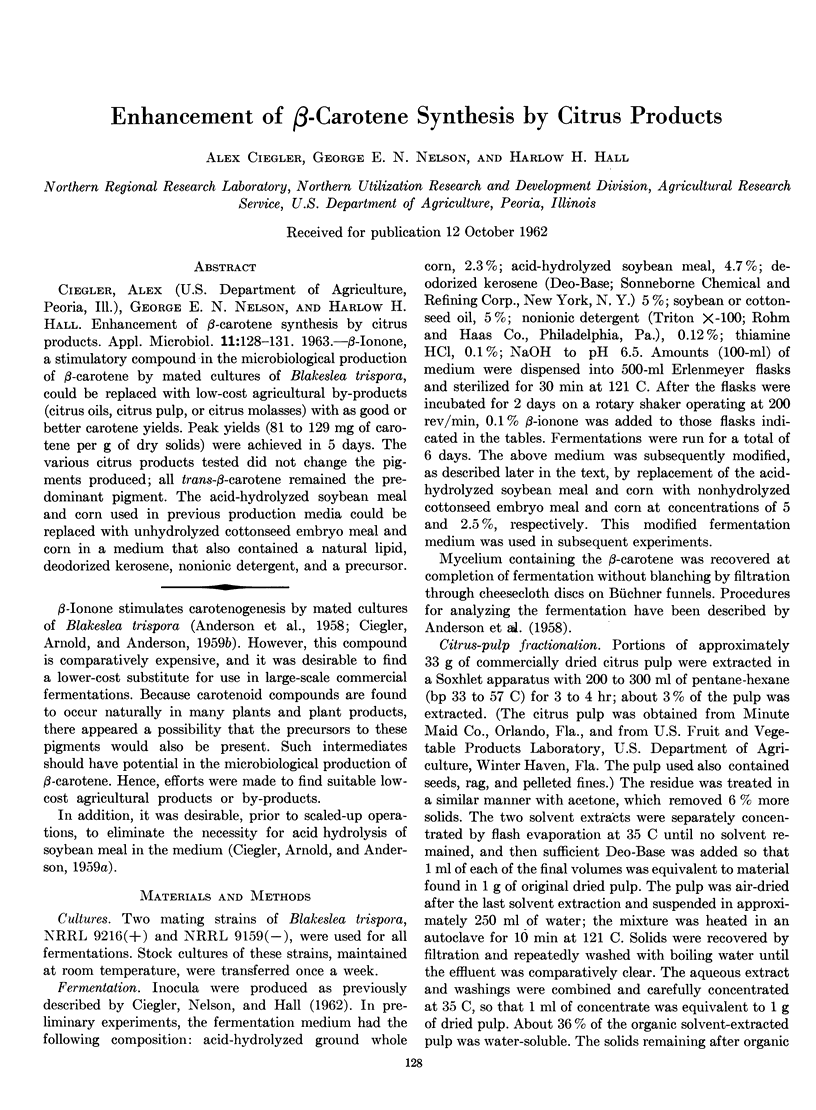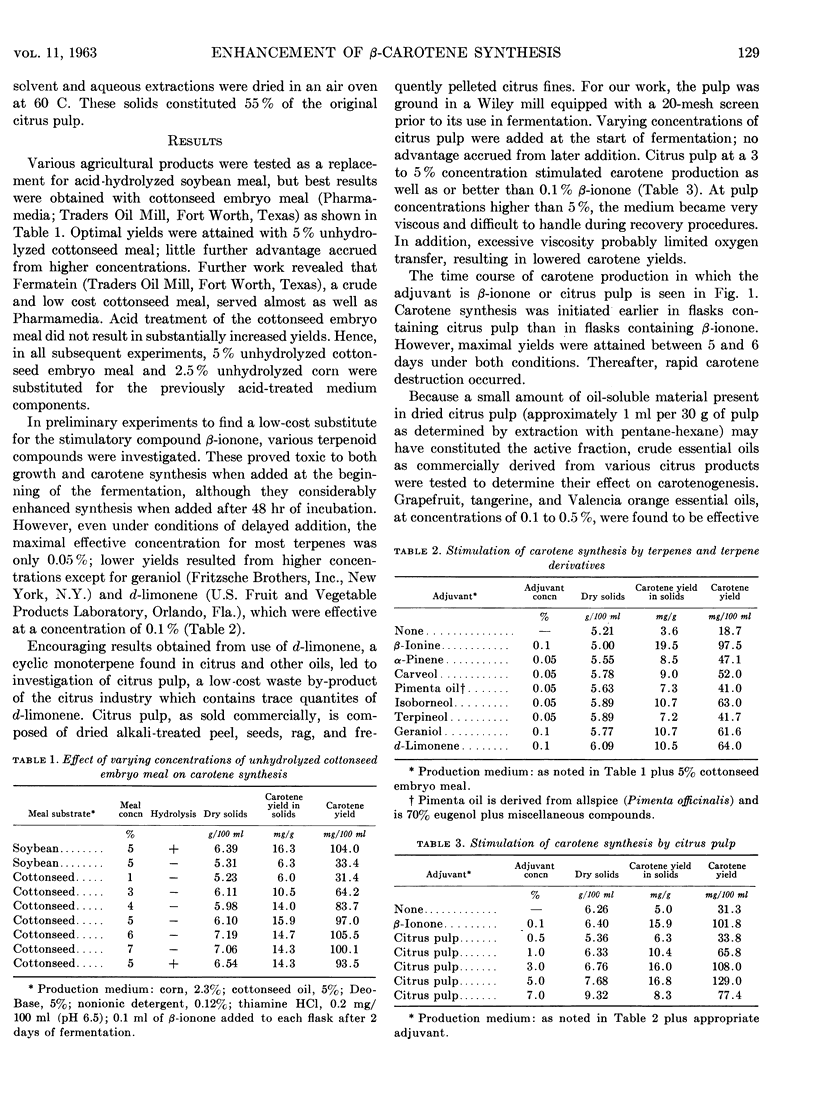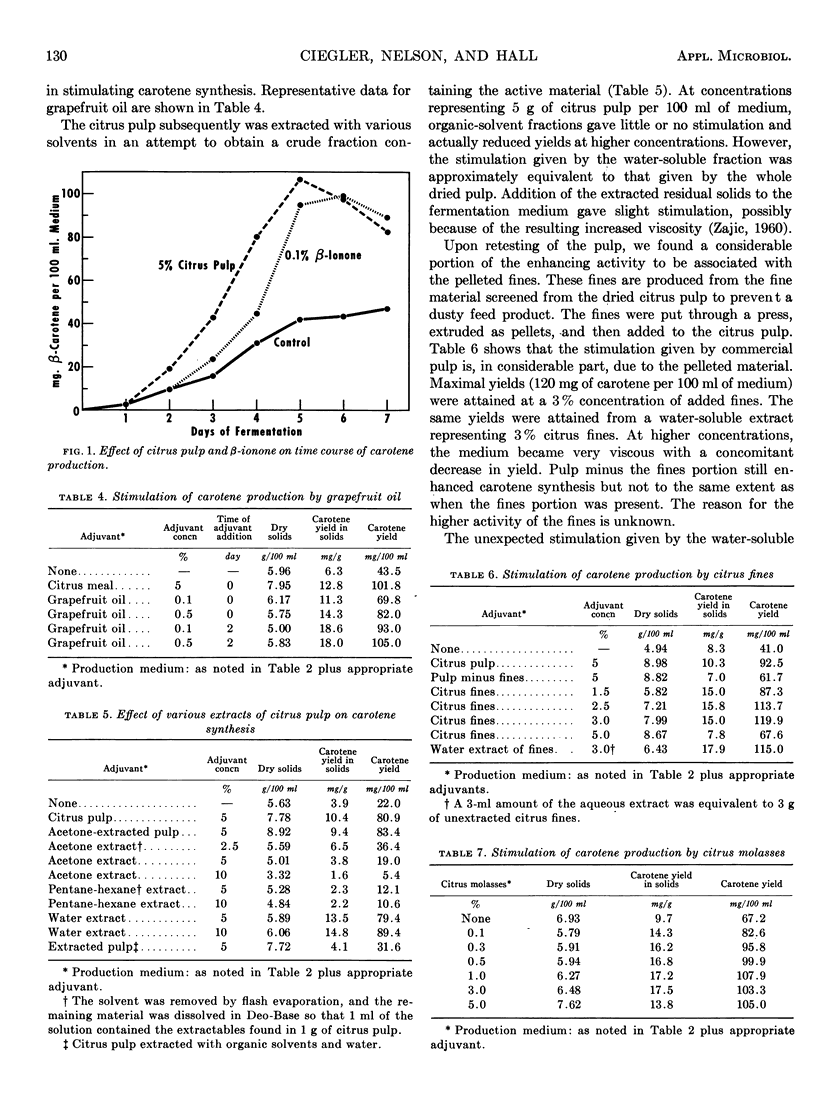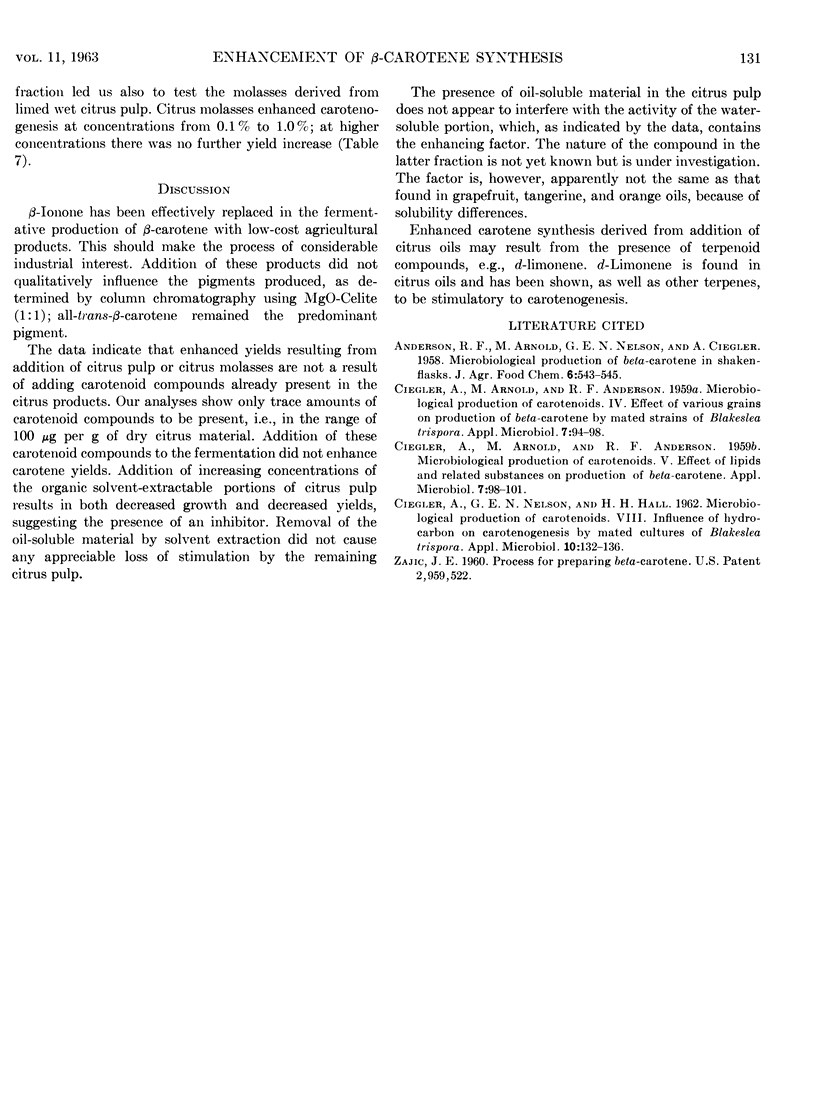Abstract
β-Ionone, a stimulatory compound in the microbiological production of β-carotene by mated cultures of Blakeslea trispora, could be replaced with low-cost agricultural by-products (citrus oils, citrus pulp, or citrus molasses) with as good or better carotene yields. Peak yields (81 to 129 mg of carotene per g of dry solids) were achieved in 5 days. The various citrus products tested did not change the pigments produced; all trans-β-carotene remained the pre-dominant pigment. The acid-hydrolyzed soybean meal and corn used in previous production media could be replaced with unhydrolyzed cottonseed embryo meal and corn in a medium that also contained a natural lipid, deodorized kerosene, nonionic detergent, and a precursor.
Full text
PDF



Selected References
These references are in PubMed. This may not be the complete list of references from this article.
- CIEGLER A., ARNOLD M., ANDERSON R. F. Microbiological production of carotenoids. IV. Effect of various grains on production of beta-carotene by mated strains of Blakeslea trispora. Appl Microbiol. 1959 Mar;7(2):94–98. doi: 10.1128/am.7.2.94-98.1959. [DOI] [PMC free article] [PubMed] [Google Scholar]
- CIEGLER A., ARNOLD M., ANDERSON R. F. Microbiological production of carotenoids. V. Effect of lipids and related substances on production of beta-carotene. Appl Microbiol. 1959 Mar;7(2):98–101. doi: 10.1128/am.7.2.98-101.1959. [DOI] [PMC free article] [PubMed] [Google Scholar]
- CIEGLER A., NELSON G. E., HALL H. H. Microbiological production of carotenoids. VII. Influence of hydrocarbon on carotenogenesis by mated cultures of Blakeslea trispora. Appl Microbiol. 1962 Mar;10:132–136. doi: 10.1128/am.10.2.132-136.1962. [DOI] [PMC free article] [PubMed] [Google Scholar]


